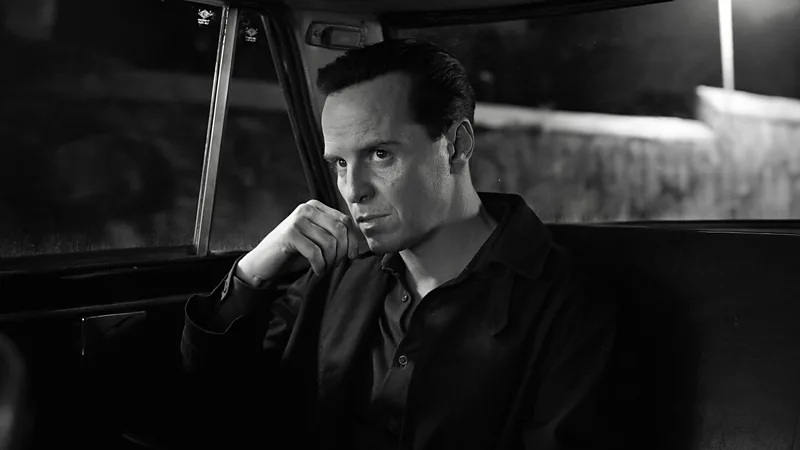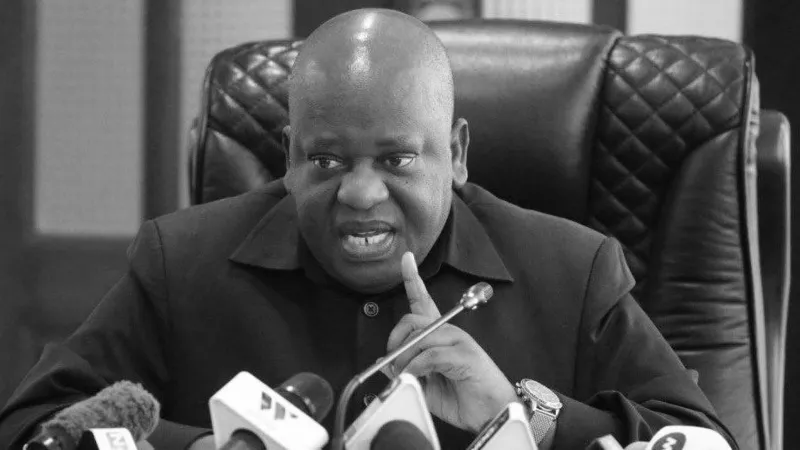Ripley review: 'Masterful' show is 'the Hitchcock series Hitchcock never made'
Andrew Scott stars as the sinister anti-hero in the suspenseful and 'creepy' new Netflix adaptation of Patricia Highsmith's classic novel The Talented Mr Ripley.

Anyone who has seen the glorious, sun-drenched film The Talented Mr Ripley (1999) with Matt Damon as the con man who usurps the life and identity of his rich friend, will be astonished at how this new series transforms the same story into something completely different but just as masterful. The great Andrew Scott brings a hum of sinister energy to the role of Tom Ripley, in a psychological thriller full of suspense from the start. It begins with a mysterious glimpse of a corpse being dragged down a staircase. The show is brilliantly shot in black and white by the Oscar-winning cinematographer Robert Elswit, creating a beautiful shadowy look that intensifies the creepy feeling. And writer and director Steven Zaillian makes his smart script compulsively watchable. Ripley plays as if it were a Hitchcock series Hitchcock never made.
Set in 1961, the show flashes back from that opening scene, and sets up Tom as a small-time grifter in New York City, in a trajectory true to the Patricia Highsmith novel the show is based on. (Hitchcock's Strangers on a Train was also based on a Highsmith novel, a natural fit.) Ripley is contacted by the father of Dickie Greenleaf, a friend of a friend of a friend. Herbert Greenleaf, played by the playwright and film director Kenneth Lonergan (Manchester by the Sea), will pay Tom to go to Italy and convince his son to come home. Wearing a shabby leather jacket, Tom arrives in the seaside town of Atrani and ingratiates himself with Dickie (Johnny Flynn) and his friend Marge Sherwood (Dakota Fanning), the only other Americans around.
Flynn smoothly makes Dickie charming and a bit naive, the perfect target for Tom, who is uncultured but a quick study. He invites Tom to share his large house, and together they travel to Naples and Rome, and go out on Dickie's boat. Even on the sunniest days, though, the tone is ominous. Soon Tom is roaming through the house, finding the numbers on Dickie's bank accounts, and noting how he signs his name. By the end of the first episode, he is looking into the mirror and impersonating Dickie's voice. That Scott is obviously older than Damon's callow Ripley suggests the character has led a life of grift.
The show is driven by the question that arises with each increasingly desperate scheme: Will he get away with this one?
Scott is now best known for his sympathetic roles as Hot Priest in Fleabag and the long-grieving son in All of Us Strangers, but here he carries an echo of his chillingly evil Moriarty in the Benedict Cumberbatch series Sherlock. A slight shift of his eyes or hint of a smile reveals what Tom is thinking. Brief flashes of dreams or fantasies give us more of his thoughts, as a mention of his aunt makes him envision her at the dentist with a torturous device holding her mouth open. The series doesn't exactly ask us to root for Tom, but it is almost entirely from his point of view, and aligns us with him so strongly that we are led to share the constant fear that his deceptions will be discovered. The show is driven by the question that arises with each increasingly desperate scheme: Will he get away with this one?
If Scott and Zaillian (writer of Schindler's List, and writer and director of the series The Night Of) make a wrong move here, it might be in showing Tom as transparently devious so early, which in turn makes Dickie seem obtuse. But that is offset by the way other characters see right through him. Marge and Freddie Miles, a friend whom Tom and Dickie encounter in Naples, both look at Tom sceptically, clearly wondering what this stranger is doing here and what he wants from Dickie.
In a clever change from the book and the earlier film, in which Freddie is a loutish American, here he is British and androgynous looking, played with a knowing smile by Eliot Sumner. Surfacing the homoerotic current in Highsmith's book, Freddie is unsettling to Tom who, several times in the series, insists he is not gay. Scott makes his declaration "I like girls" so stilted that even naive Dickie gives a derisive little laugh.
The series takes a violent turn when Dickie tires of Tom's freeloading presence. (There are slight spoilers ahead for anyone not familiar with the story.) Dickie disappears and Tom begins masquerading as him, renting a huge apartment in Rome. Freddie shows up and says he knows Tom is lying about something, which leads to a cat-and-mouse game between Tom and detectives in Rome. Elswit (There Will Be Blood), makes the scenes even eerier as Tom prowls around dark, narrow streets and empty roads in the moonlight. John Malkovich, who played a version of the character in the film Ripley's Game (2002), based on a different Highsmith novel, has a sly Easter egg of a cameo in the final episode.
Zaillian creates a touchstone, not from Highsmith, that runs through the series. Dickie introduces Tom to the paintings of Caravaggio and tells him the story of the Renaissance artist, who fled Rome after being accused of murder. Excellent choice. Tom Ripley, an artist of deception, can relate.
-bbc







